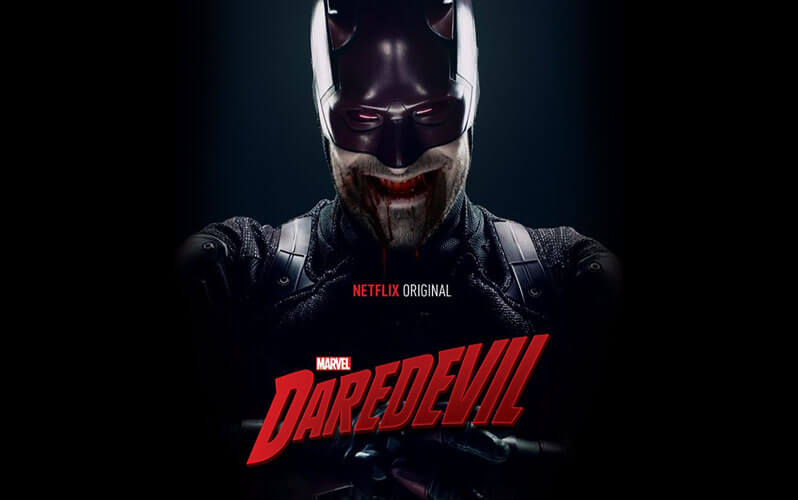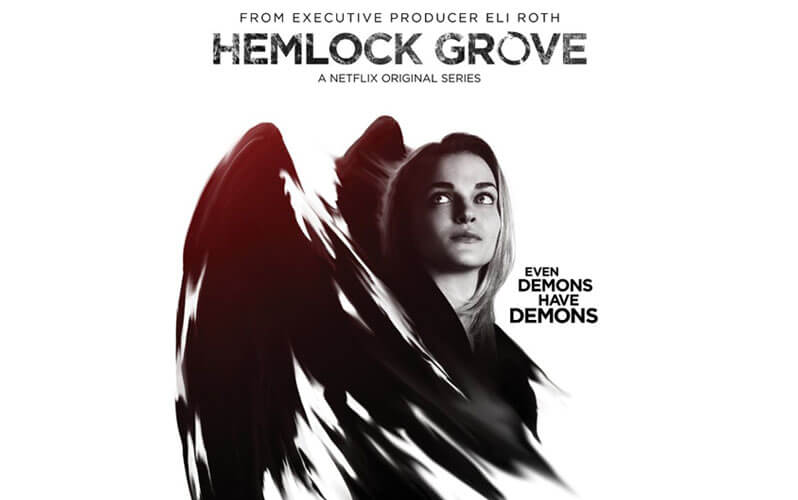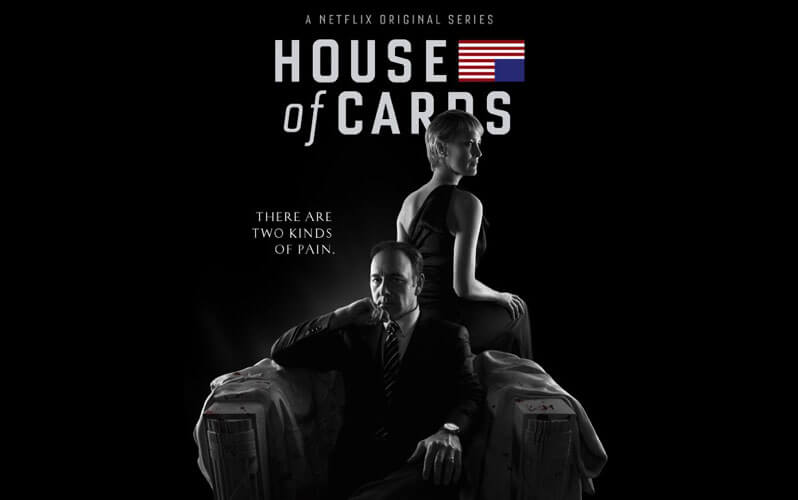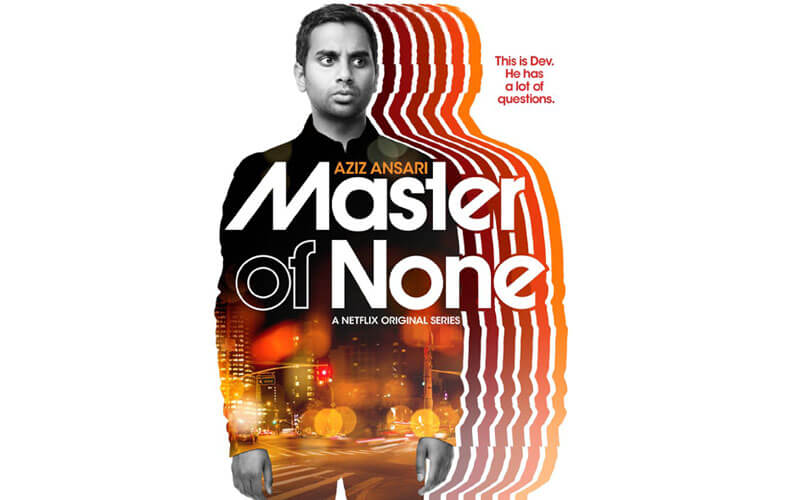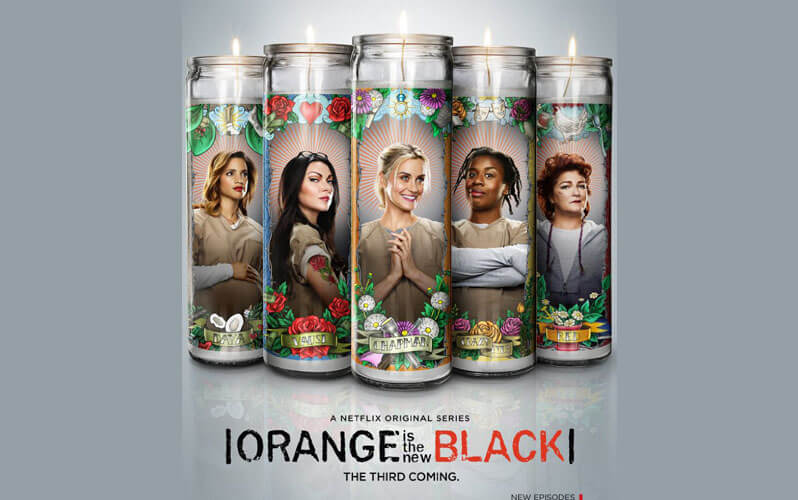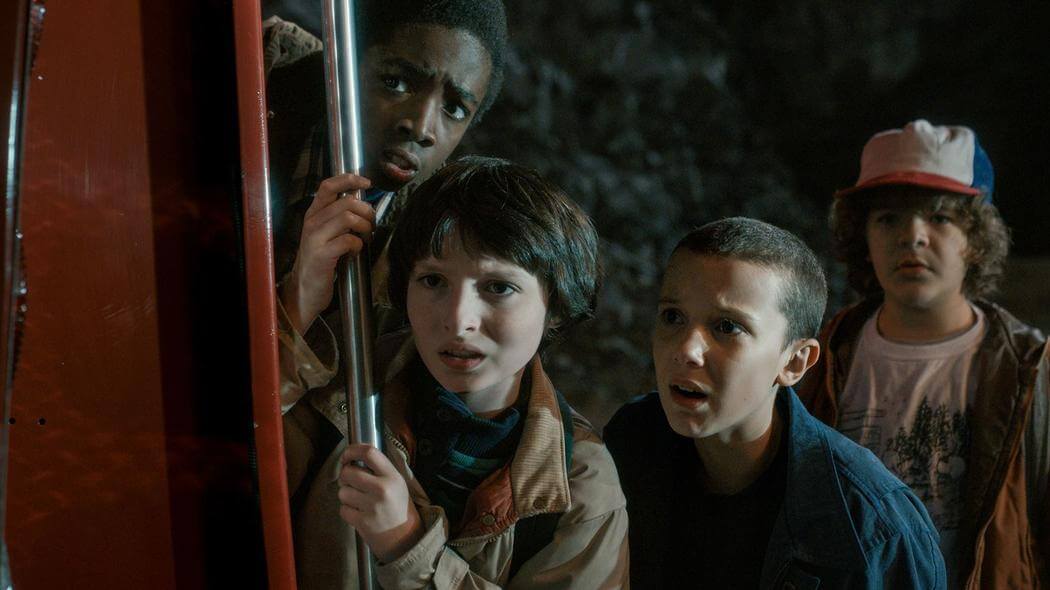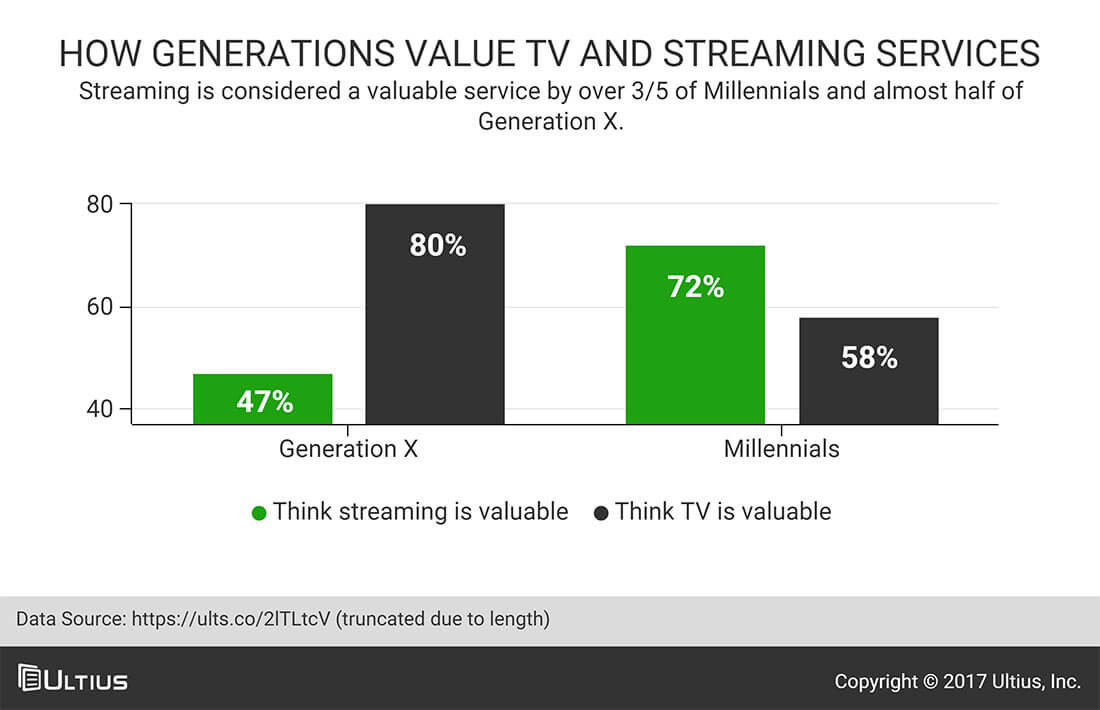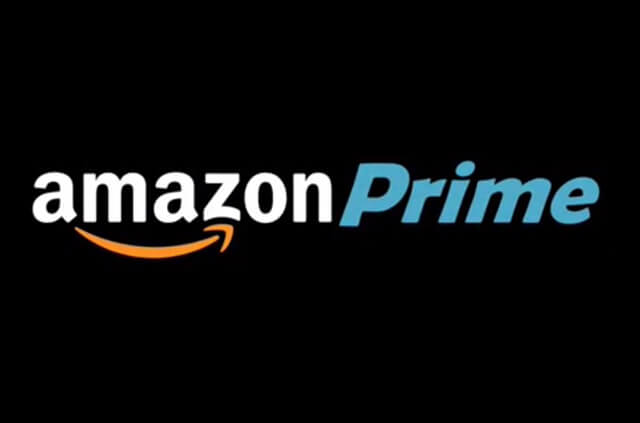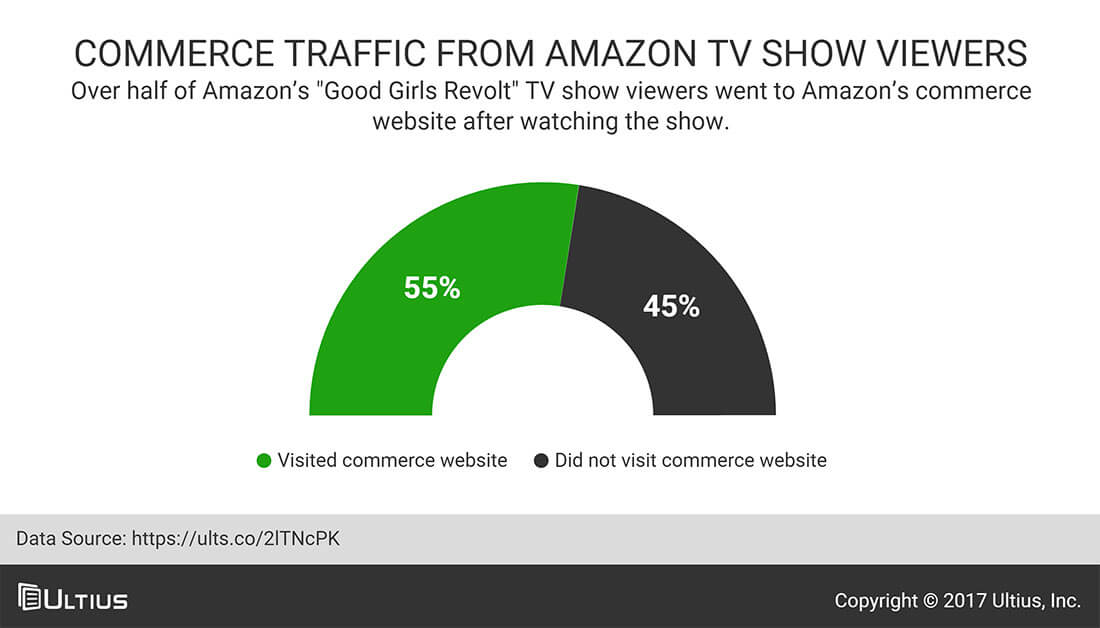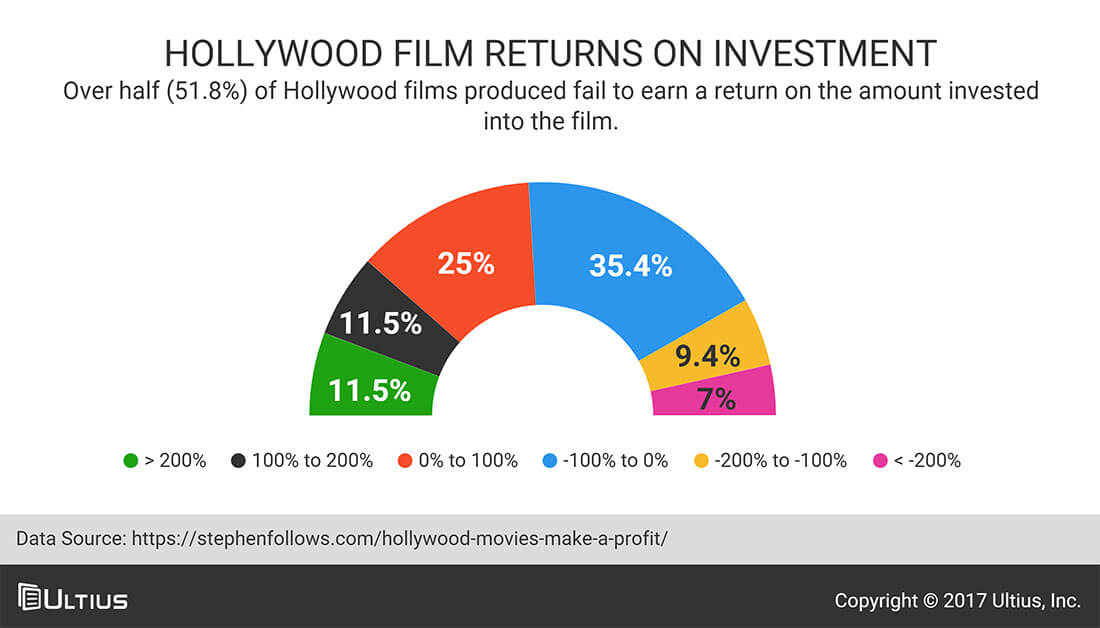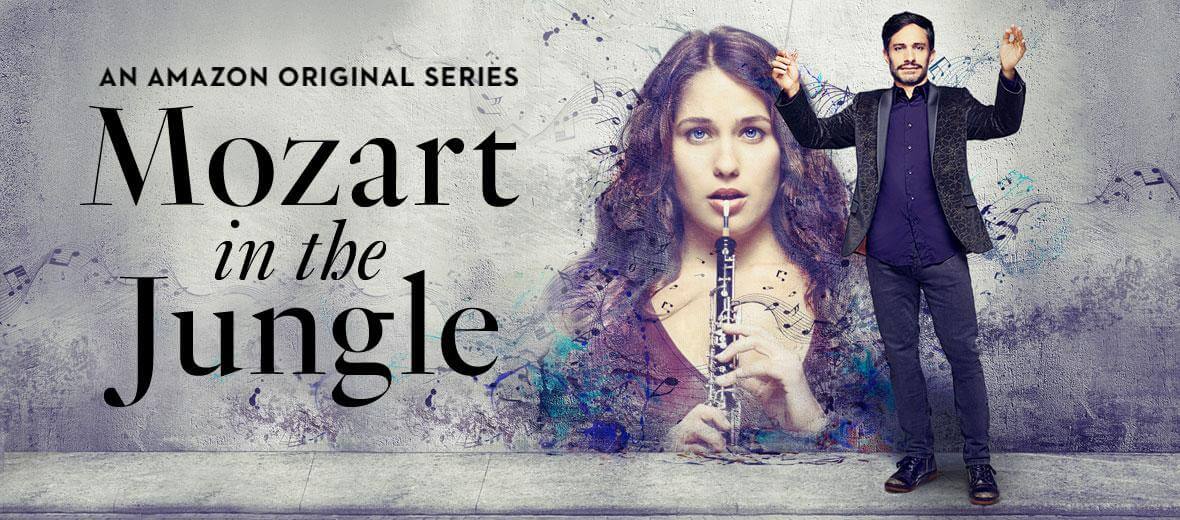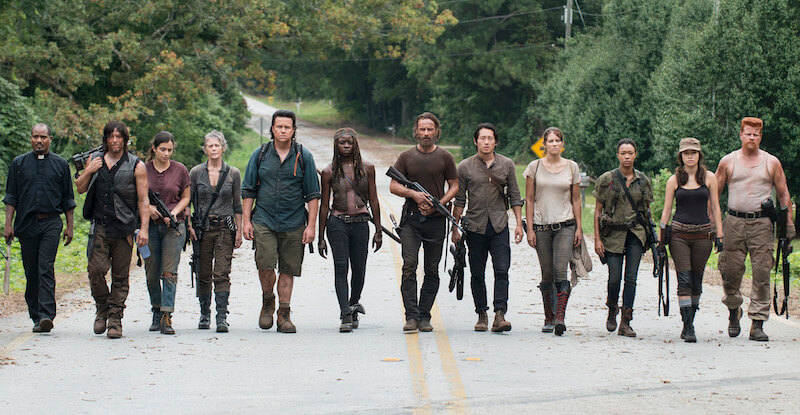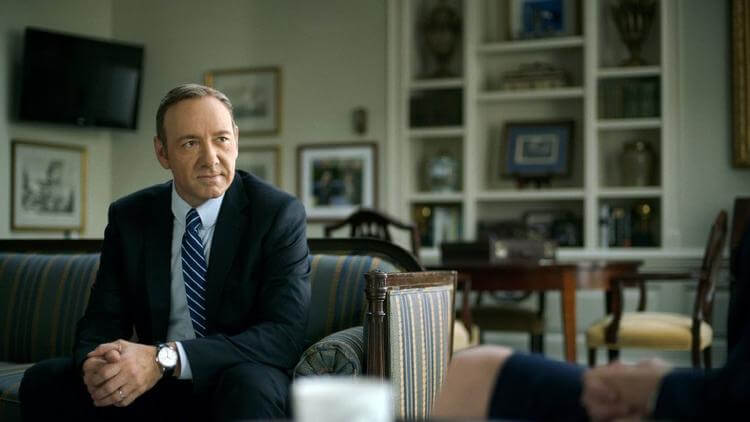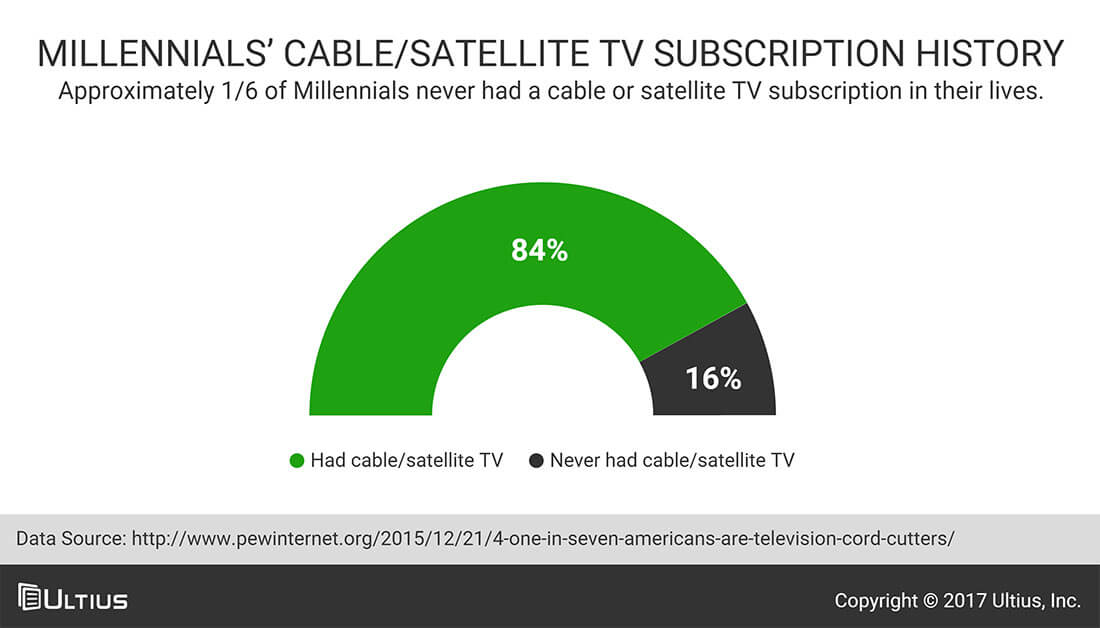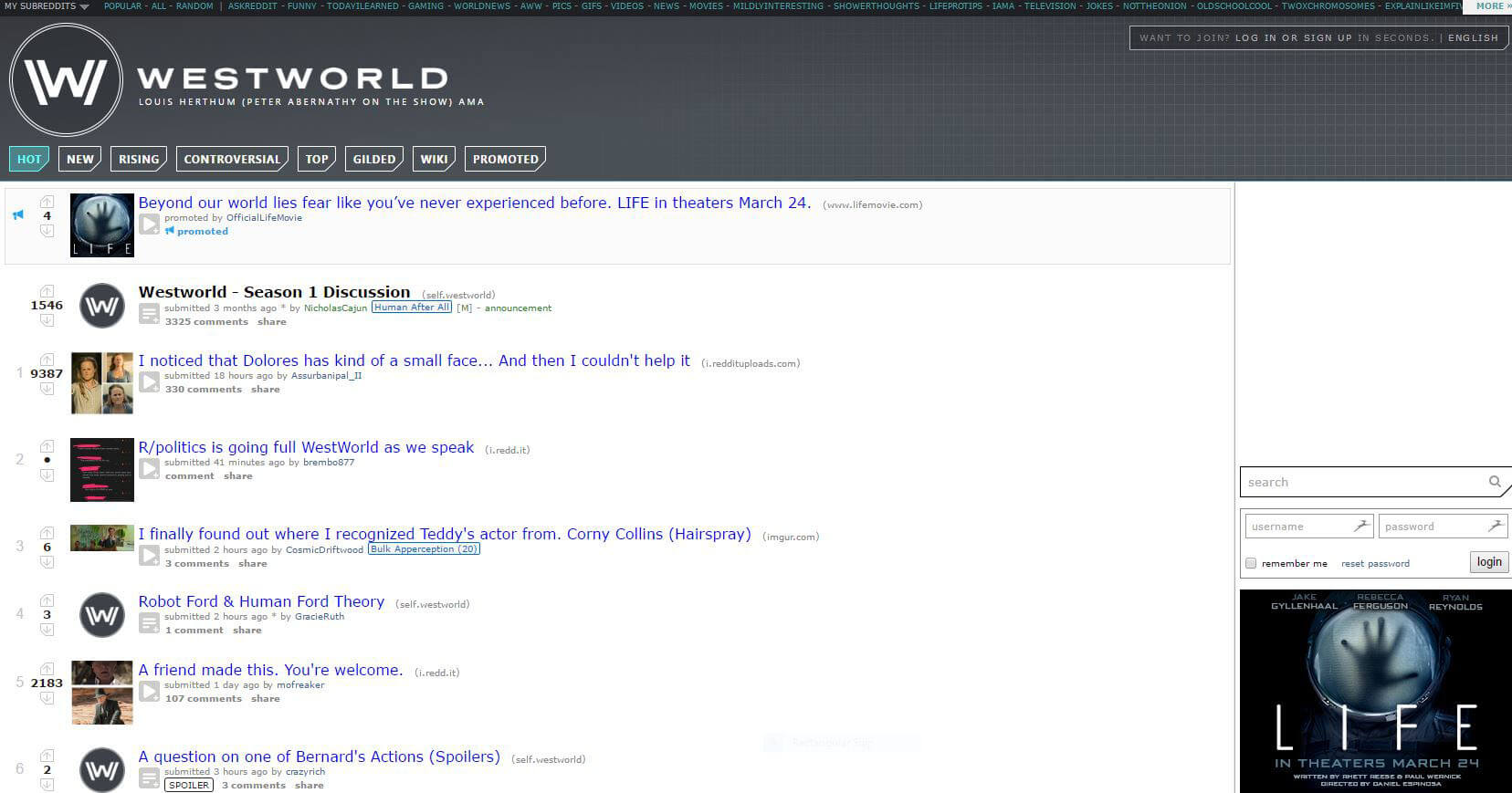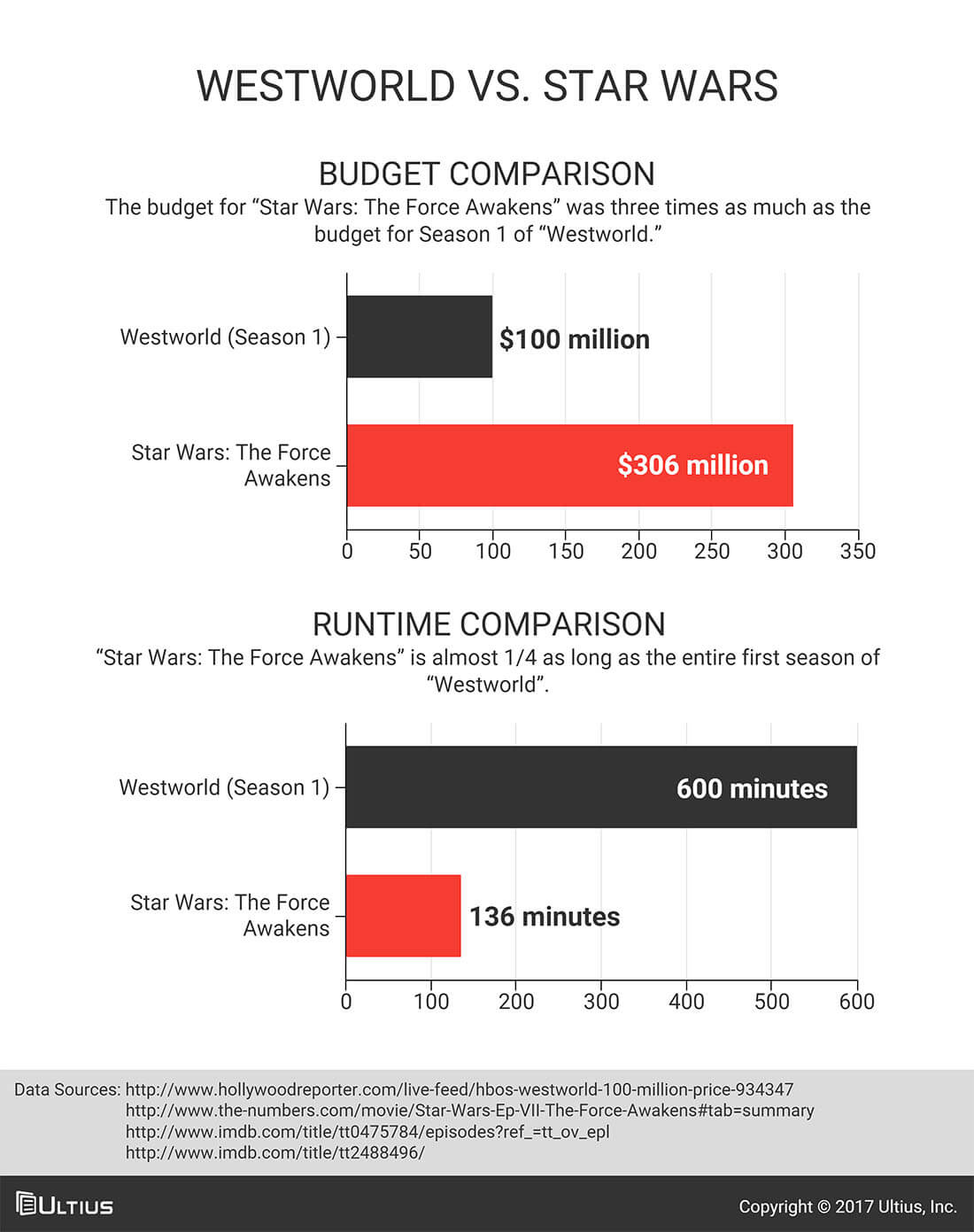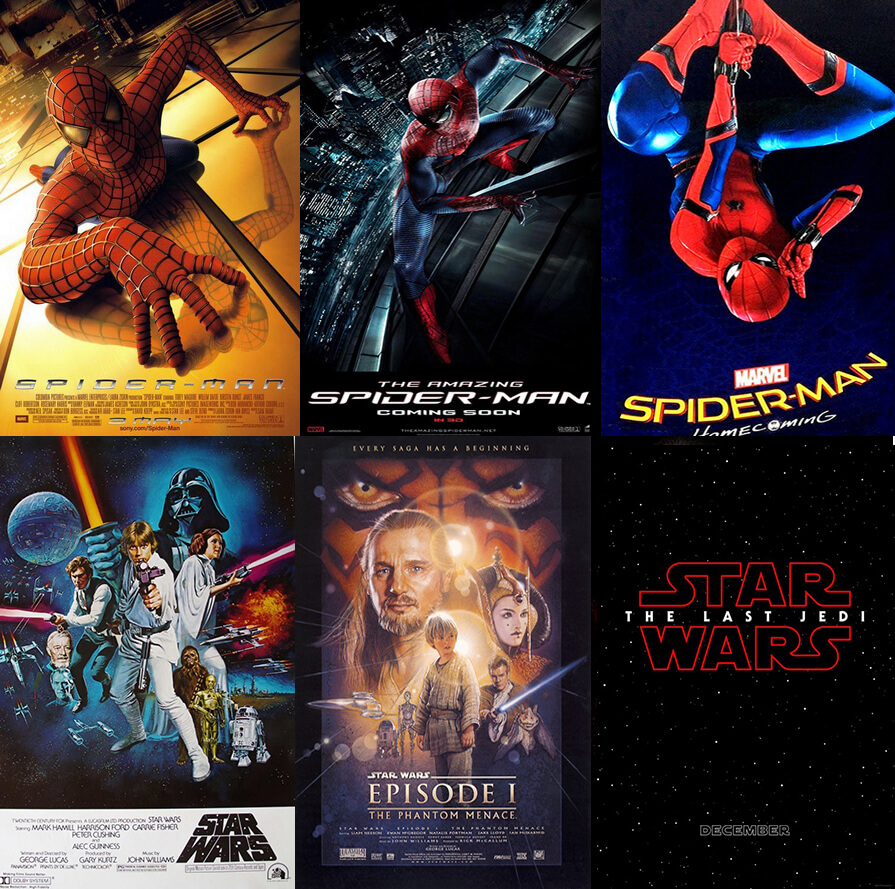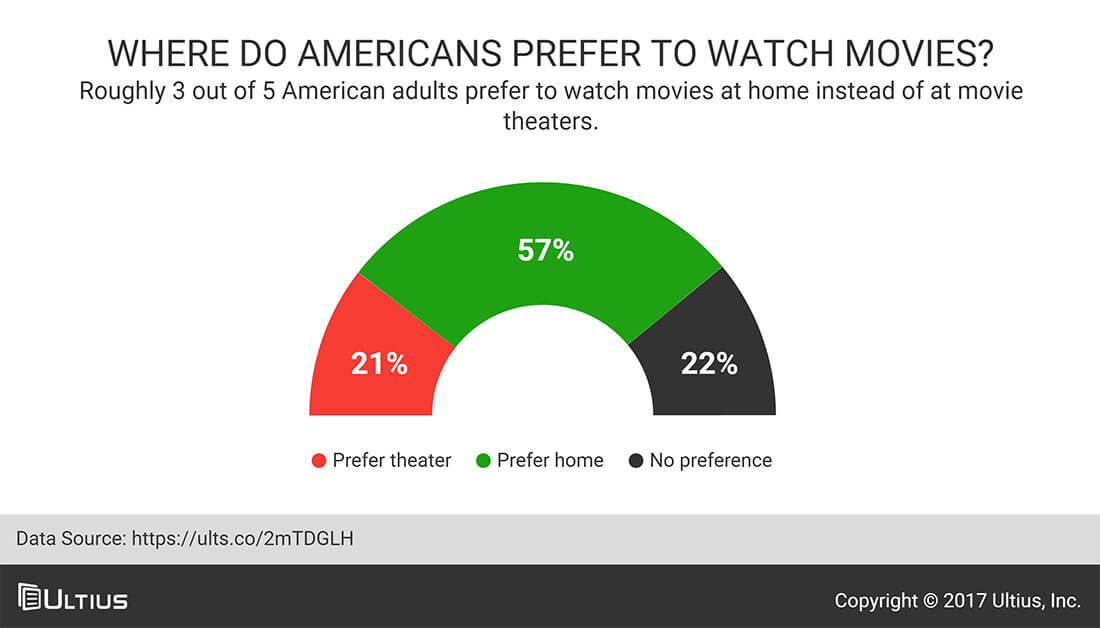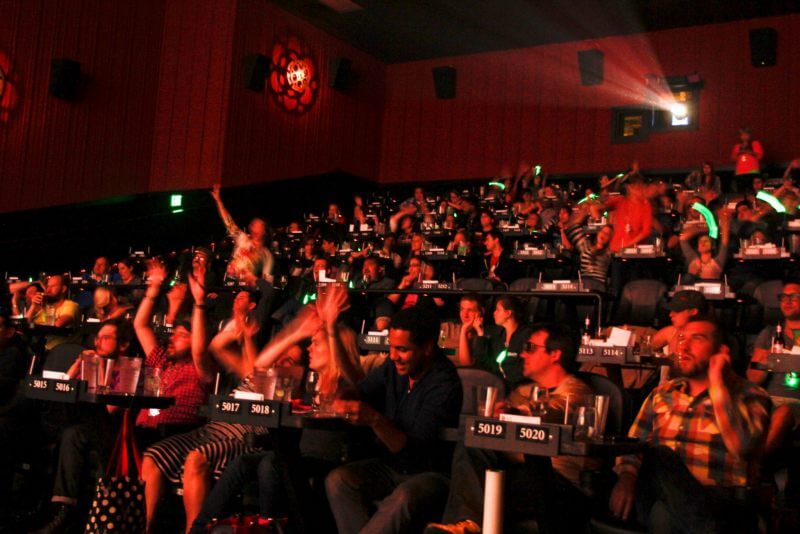Ultius Blog
How TV Shows Are Overtaking Hollywood Films
It may be common knowledge by now that television shows have lately come into their own as the premier medium for people who are looking for quality creative content. There are actually so many TV shows out there now, and so many new ones being made at such a rapid pace, that Jethro Nededog of Business Insider has reported concerns within the industry that we may be close to the point of "peak TV." In the meanwhile, you probably know from your own experience that we're in something of a golden age of television.
Definition: peak TV—the idea that the TV industry has reached an economic maximum point, such that there is nowhere to go but down. The term "peak" is used in this way for other industries as well: for example, peak oil.
The purpose of this article is to delve into how TV shows are overtaking feature-length films produced by Hollywood, and also discuss the impact streaming services have on broadcast-based television. It would seem that we are now seeing a new medium come into dominance, and an older medium fading away: TV shows are taking over the place in culture that used to be reserved for movies.
This article will include several sections, including the following:
- The beginning of TV and TV shows
- From commerce to show business
- Are TV shows producing better stories than Hollywood films?
- TV shows versus Hollywood films - Differences in format and length
- Notable Hollywood film actors migrate to TV
- Why TV shows are growing more popular
- The weaknesses of Hollywood feature films
- Will movie theaters become obsolete?
- What can Hollywood do to catch up?
The article will thus attempt to capture the current cultural moment and shift regarding this subject.
The beginning of TV and TV shows
The first thing to understand here is that while we are speaking of "TV shows", the TV show today is far different from what it is ever been in previous decades. Among other things, TV shows are now often no longer watched on actual televisions. There has been a deep shift away from watching TV shows broadcast by networks on channels, and toward watching them through streaming services available through the Internet.
It may worthwhile to start by talking about old-fashioned television itself, as well as the emergence of streaming services.
What early television was like
The invention of the television can be traced back to the 1930s, when the dominant radio company RCA began investing in the new technology. And the first steps were more rudimentary than we may be able to imagine today. As Mitchell Stephens has written for Grolier Encyclopedia:
"Early television was quite primitive. All the action at that first televised baseball game had to be captured by a single camera, and the limitations of early cameras forced actors in dramas to work under impossibly hot lights, wearing black lipstick and green makeup (the cameras had trouble with the color white)."
The technology developed exponentially over the course of the next several decades, and people were eventually able to choose from a wide range of TV shows that aired on a regular schedule. This is generally what people think of when they think of the old-fashioned concept of the TV show.
| Show | Network | Years aired |
| Leave it to Beaver1 | CBS | 1957 - 1963 |
| The Brady Bunch2 | ABC | 1969 - 1974 |
| I Dream of Jeannie3 | NBC | 1965 - 1970 |
| Full House4 | ABC | 1987 - 1995 |
| Friends5 | NBC | 1994 - 2004 |
| How I Met Your Mother6 | CBS | 2005 - 2014 |
These shows generally aired once a week (or on some other regular schedule), for specific seasons, over the course of several years. This meant that viewers had to plan to watch the shows when they aired, and that they had to put up with commercial breaks as well.
The emergence of streaming services
This old model of television has been radically shaken up over the course of the past decade or so as the result of the emergence of streaming services. Netflix was an indisputable pioneer in this regard. Netflix began as more or less a simple movie rental service, but it evolved into something much greater than that. This had to do with Netflix pivoting away from movies and toward TV shows.
As of Joe Nocera of the New York Times has put the matter:
"Television shows lined up to license their shows to Netflix, failing to see the threat it posed to the established order. . . . Everyone seemed to be a winner, including the shows themselves. In 2012, for example, Netflix began streaming the first three seasons of 'Breaking Bad,' the dark drama produced by Sony that ran on AMC."
This was especially effective for television shows, such as Mad Men, that required the viewer to watch the episodes in sequence in order to get real sense from the show (as opposed to a show such as Friends, where any one episode makes sense in and of itself).
Eventually, Netflix went further and began developing its own TV shows. By this point, though, many other streaming services, such as Amazon and Hulu, had caught on to the trick and began doing the same. This set the stage for the current trend, in which there is a high volume of original TV shows available on the market.
| Show | Platform | Year |
| House of Cards1 | Netflix | 2013 |
| Stranger Things2 | Netflix | 2016 |
| Mozart in the Jungle3 | Amazon | 2014 |
| The Man in the High Castle4 | Amazon | 2015 |
| Sneaky Pete5 | Amazon | 2016 |
| 11.22.636 | Hulu | 2016 |
Some networks make content for TV and streaming
There are some networks that have been playing both the old and new games, creating content for their own TV stations as well as making that content available for streaming. HBO and its show Westworld is a good example of this, as is USA Network with Mr. Robot. HBO has its own online streaming service, while the content of USA Network is distributed through Amazon.
This would seem to be a stratagem for casting a wide net and drawing in as many viewers as possible, either through traditional TV or through streaming services. According to the consulting agency Deloitte, older generations still prefer traditional TV, whereas the Millennial generation prefers streaming services.
This suggests that making TV shows available through both traditional television and streaming services may be a good strategy for appealing to viewers of all age groups.
From commerce to show business
In the contemporary television climate, one question that you may well be asking is: why would a company such as Amazon even be in the business of making TV shows? After all, Amazon is essentially an online supermarket; one could well wonder why Amazon is now also a media company.
And the simple answer is: Amazon is actually using its original TV shows as a marketing and media strategy. In order to access Amazon's shows, the customer must sign up for the Amazon Prime program, which in turn makes the customer more likely to shop through Amazon in the future. The simple fact is that no matter how high the quality of an Amazon original show (such as Mozart in the Jungle, which won multiple Golden Globes) may be, from the perspective of Amazon, the show itself is merely a means to an end.
The shift toward utilitarian TV programming
In philosophical terms, this means that a company such as Amazon produces its own TV shows for utilitarian reasons: the company does it because it believes that producing the content would serve as effective marketing for its primary services. Similarly, Netflix creates its own shows in order to encourage potential customers to get Netflix subscriptions.
Utilitarianism is a form of consequentialism; and as Walter Sinnott-Armstrong has written for the Stanford Encyclopedia of Philosophy, consequentialism suggests that
"whether an act is morally right depends only on the consequences of that act."
This contrasts with virtue ethics, which suggests that the moral worth of an act is dependent on the inherent quality of the motives driving that act, and not on whether the act produces a good or a bad effect.
Original TV programming by streaming services is based not on the inherent worth or value of the TV shows themselves. Rather, the TV shows are evaluated in terms of whether they produce profits for the company. This is especially the case with Amazon, where the TV shows themselves are a form of marketing for completely unrelated services. If the TV shows are good, then this is simply because of the fact that good shows will serve a better marketing purpose than bad ones—and not because of the inherent value of the good shows themselves.
Metrics: From viewing to buying
The metrics produced by Amazon suggest that after viewing an Amazon TV show, customers then go on to shop at Amazon. On the basis of internal data that has not been publicly released but has nevertheless been reported by some news outlets, 55 percent of customers who watched the Amazon show Good Girls Revolt went on to explore the commerce section of Amazon's website. This has been used as an argument against the cancellation of that show.
If the data is valid, then this would be an example of a TV show fulfilling a great marketing function for its parent company.
The modern parallel to the old ways of TV
In fact, the point could be made that TV shows, even on broadcast networks, have always been a form of marketing. In the traditional model, broadcast networks don't really make money just by having a person tune in; rather, they make money from advertisers who will pay more for ad placement on the networks, if they know that a given show or time slot has a high level of viewership. This is never more apparent than when a company like Budweiser advertises their product during the Super Bowl--an event in which a lot of people will be drinking or purchasing beer.
The NFL is probably the most obvious example of how advertising works with broadcast TV, which has been catering primarily to advertisers, and not to the viewers per se. It goes like this:
- Ad slots are worth more, if a network has a high level of viewership.
- A high level of viewership can be developed by broadcasting popular shows.
- The networks want money.
- Therefore, the networks develop high-quality and/or popular shows.
This is essentially the same logic that is driving the creation of new television shows in today's streaming age.
Are TV shows producing better stories than Hollywood films?
Now it's time to consider why TV shows are overtaking old-fashioned Hollywood movies. One possible reason for this phenomenon is that TV shows today are simply capable of producing better and more engaging stories than Hollywood.
There is a lot to be said in favor of this argument. And one of the main points here consists of the fact that TV shows give producers and writers the freedom to aim at niche audiences, as opposed to the general public as a whole.
TV aims at niche audiences
Hollywood movie productions are in general under a great deal of pressure to bring in as wide an audience as possible, in order to make as great a profit as possible on top of the original investment required for making the movie. According to data collected and analyzed by Stephen Follows, this is the overall breakdown for the finances of Hollywood films.
A lot of Hollywood movies actually lose money for their investors—which puts all that much more pressure to go big with potentially successful films.
On the other hand, TV shows are not compelled to try and appeal to anyone and everyone. Rather, if they can simply bring a niche of viewers who weren't there before into the company, then their mission would be accomplished. This is how Mozart in the Jungle, a show about a fictional symphony orchestra in New York or a show with a transsexual main character (Transparent) could become big successes on Amazon.
This dynamic enables TV shows to explore and produce new and innovative stories that may be simply beyond the financial capabilities of Hollywood. Mozart in the Jungle does not need to try to connect with 100 percent of viewers; rather, if it could even a small number of new customers into the Amazon circle (which it surely has), it would have done its job.
TV shows versus Hollywood films - Differences in format and length
TV shows may also be able to develop better stories than Hollywood movies due to the fact that the TV show has a radically different structure. A season of a TV show gives writers and producers far more time to work with the plot material and develop interesting plot arcs than does the average time frame provided by a traditional movie. In order to make this point more clear, let us compare two media products: Lord of the Rings: Fellowship of the Ring, and the first season Game of Thrones.
The first Lord of the Rings movie was based on the first book of J.R.R. Tolkien's book trilogy of the same name (Fellowship of the Ring); whereas the first season of Game of Thrones was based on George R.R. Martin's book series A Song of Ice and Fire. Here are some metrics regarding both the source materials and the TV/film adaptations.
| Movie/TV show | Word count | Screen time (in minutes) |
| Lord of the Rings: Fellowship of the Ring (Film) | 187,790 | 178 |
| Game of Thrones (Season 1, TV) | 298,000 | 550 |
This indicates that Game of Thrones, as a TV show, was able to dedicate at least twice as much attention to its source material as was Lord of the Rings as a movie. (This is even given the fact that Lord of the Rings: Fellowship of the Ring, is almost three hours long). This shows how a TV show is able to delve deeper and construct more complex plot arcs than is generally possible for a traditional movie.
In addition, it is worth considering the fact that the episodic structure of the television show allows the show to drift among different plot arcs with relative ease, and without producing a jarring effect on the viewer.
It would be very difficult to pull this off within the format of the traditional movie, which works within a considerably narrower time frame and is also confined by expectations that they movie will contain a unit of plot and that there will clear logical links between the introduction at the beginning and the resolution at the end. TV shows are in general permitted to pursue much freer and more complex plot arcs.
Notable Hollywood film actors migrate to TV
Another dynamic that is driving the growing success of TV shows over Hollywood movies consists of the fact that some of the most talented actors today are actually opting to work on TV shows and not on movies. This adds to the both the credibility and the quality of TV shows; and it also raises the question of why this shift is happening.
| Actor | TV show and network/platform | Awards won |
| Jessica Lange | American Horror Story (FX) | Oscar, Best Actress, Blue Sky |
| Shirley MacLaine | Downton Abbey (PBS/ITV) | Oscar, Best Actress, Postcards from the Edge |
| Dustin Hoffman | Luck (HBO) | Oscar, Best Actor (2x) Rainman, Kramer VS Kramer |
| Matthew McConaughey | True Detective (HBO) | Oscar, Best Actor, Dallas Buyers Club |
| Halle Berry | Extant (CBS) | Oscar, Best Actress, Monster’s Ball |
| Adrien Brody | Houdini (History/A&E) | Oscar, Best Actor, The Pianist |
| Jon Voight | Ray Donovan (Showtime) | Oscar, Best Actor, Coming Home |
| Kevin Spacey | House of Cards (Netflix) | Oscar, Best Actor, American Beauty |
This is what Academy Award winner Matthew McConaughey, a lead in the acclaimed first season of the TV show True Detective, has said to Business Insider about his own simple reason for making the switch from movie to TV show:
"Quality. Not only quality that specifically came out of 'True Detective' which was quality of the highest, but I'm talking about quality of television today. Television is raising the bar on the character-driven drama series. It just is."
Essentially, the best actors want roles that they will find challenging and creatively fulfilling. And it would seem that looking at their options, many actors see that TV shows, and not traditional movies, are the ones that are offering such roles to them. FX’s American Horror Story features not 1, not 2, but 3 winners of Best Actress Academy Awards in its stellar cast (Jessica Lange, Kathy Bates, and Angela Bassett).
Again, from the perspective of the actors, it would seem that the most compelling reason for this shift is simply that the work is better: TV shows are providing actors with opportunities to develop and express their talents in a way that traditional movies either no longer care or no longer will.
Acclaimed film directors migrate to TV
A compelling development in the migration to television is that directors are actually following the lead of the actors with regard to making the move from the big screen to the small screen. Moreover, they would seem to be making the transition for much the same reasons. The most talented directors want to work in the medium that has the greatest potentials available for innovative and creative expression; and today, that would be the TV show, and not the movie.
| Director | Show (Platform/Network) | Notable film |
| Martin Scorsese | Boardwalk Empire (HBO) | Goodfellas |
| Woody Allen | Crisis in Six Scenes (Amazon) | Annie Hall |
| Guillermo del Toro | The Strain (FX) | Pan’s Labyrinth |
| Cary Fukunaga | True Detective (HBO) | Jane Eyre |
| David Fincher | House of Cards (Netflix) | Fight Club |
Action on the big screen, drama on the small screen
One of the main factors that is causing both actors and directors to view the TV show medium as having more potential than the film medium has to do with the fact that each medium has almost begun to specialize in different genres. More specifically, Hollywood movies seem to be tending increasingly toward action, whereas TV shows seem to be tending toward drama. Christine Persaud of Digital Trends has written the following about this matter:
"Moviemakers have increasingly been leaning toward big budget action films, and animated voice-over roles. . . . Compare this to the top-10 time-shifted shows for 2015, as per Nielsen figures, which were all stellar dramas. Fargo, True Detective, Better Call Saul, Bates Motel, and Game of Thrones."
This is clearly very different from focusing on the latest entry in a Star Wars movie, the Jurassic Park empire, or the newest superhero film. Actors and directors who want a maximum potential for creative expression would clearly go for the more nuanced and character-driven dramas available through the TV show medium than the big-budget but generally low-talent action flicks that have recently dominated the big screen.
Why TV shows are growing more popular
There are several reasons for the growing popularity of TV shows, and one of them is surely the level of personal convenience that the medium itself affords to the viewer. The consumer can watch a TV show from the comfort of his own home; and with the rise of streaming services, he can also watch the show on his own schedule, and without having to put up with commercials.
This may be a lot more congruent with the rhythm of a modern person's lifestyle than making a plan to actually go out to the theater, or planning one's schedule around catching a show at a specific time.
This is especially true of the younger generations, namely Millennials, which have grown up with the Internet and related technologies and are accustomed to instant and personalized gratification. According to study conducted by Pew Research Center, about one in six Millennials have never had a cable or satellite TV subscription in their lives.
This can be understood as a reflection of a growing desire for personal convenience, or people wanting their entertainment to revolve around their own lives and schedules, and not vice versa.
TV is becoming a shared community experience
TV shows would also seem to give fans of a show a sense of belonging to a community—even as TV shows are increasingly consumed by people who are physically alone in their living rooms. After a season or an episode of a TV show airs, for example, there is often intense discussion on forums such as Reddit. This could be seen for the TV show Westworld, which HBO released at a more traditional pace of one episode a week.
Even when the whole season of a TV show is released all at once (as has been the case with Amazon's Mozart in the Jungle), fans tend to engage in what has been called binge watching and watch the entire season as soon as possible. This also contributes to the sense of a shared viewing experience.
This is different from the situation with traditional movies, where viewership is often diffused across a span of weeks or even months. The Star Wars films are one of the examples of this in Hollywood, with forums on the internet debating which film is the best, or whether they prefer the Dark or Light side of The Force.
The weaknesses of Hollywood feature films
A key question that can be asked is: why exactly has Hollywood itself gone downhill in the way it has? There are two main answers that can be put forth to this question. The first is the reliance of Hollywood on big money, which has had the effect of diminishing real creativity; and the second is relying on franchises and sequels, which has also diminished both the creative value and the aesthetic quality of Hollywood's products.
The high price of Hollywood film production
Hollywood generally operates on a "go big or go home" mentality: the industry spends a lot of money on its top products, and those products only have one chance to succeed or fail. This places a great deal of pressure on filmmakers to achieve success; and this pressure in turn shapes the quality and nature of the movies produced by Hollywood.
Together, these charts show that although Westworld had a screen time of about 4.5 times the new Star Wars, it had a budget of about only one-third of the latter (and it must also be considered that Westworld was an unusually expensive TV show). Whereas HBO has an almost guaranteed base of subscription that generally only grows, every Hollywood movie faces the pressure of drawing a huge crowd on the basis of its own merits alone.
Hollywood plays it safe with franchises
It is possibly because of this pressure that Hollywood has shown an increasingly tendency to expand franchises, or go with sequels to previous movies. The logic here would seem to be that if the new movie is related to an older popular movie, then there will be a better chance of getting a large audience to turn out for the new movie. Simon Brew of the entertainment website denofgeek.com indicated there are currently 116 projects in development that are all remakes or reboots of previous films.
| Film | Previous film(s) | Reboot or sequel |
| Spiderman: Homecoming (2017) | Spider-Man (2002), The Amazing Spider-Man (2012) | Reboot |
| Star Wars: The Last Jedi (2017) | Star Wars: Entire Saga (1977 -) | Sequel |
| The Batman (in production) (2018) | Batman (1989), Batman Begins (2005) | Reboot |
| Transformers: The Last Knight (2017) | Transformers: Age of Extinction (2014) | Sequel |
| Ghostbusters (2016) | Ghostbusters (1984) | Reboot |
This list could go on, but you probably get the idea. One of the greatest weaknesses of Hollywood is that it has taken to continually rehashing the same plot material over and over again. It would be cynical but nevertheless accurate to suggest that Hollywood is just trying to milk its cash cows, as opposed to taking the trouble and effort to produce truly original content. This is clearly very different from the situation regarding TV shows.
Will movie theaters become obsolete?
It could be assumed that the same people who prefer streaming TV to cable TV would also prefer the convenience of streaming movies and/or TV shows to actually visiting the theater to catch a movie. This is not only going to have an effect on Hollywood, but eventually will affect the future of cable and satellite providers as more people move to streaming content versus broadcast. According to a survey conducted by the organization The Harris Poll, the majority of Americans would actually prefer to watch a movie at home than go out to the theater.
This trend is very problematic for Hollywood, if one bears in mind that people actually going to the theater is still a major part of Hollywood's business model, with box office metrics being an important aspect of how the success or failure of a movie is measured.
The fading silver screen
This phenomenon could be called the obsolescence of the theater. And the problem can only be expected to become worse with time, as the younger generations care even less about going out to the movie theater than do relatively older folk. With the emergence and advent of sophisticated home entertainment systems, as well as the growing expectation to be gratified instantaneously and have entertainment readily available at one's fingertips, the old-fashioned experience of going to the theater would seem to be losing more and more of its charm.
And of course, this problem is only made even worse by the fact that Hollywood has increasingly given up on the project of producing high-quality, truly original content. Why would someone bother to actually make it out to the theater, when not only have they gotten used to streaming content from the comfort of their homes, but they can also stream TV shows that are actually of higher quality than what they could expect to see on the silver screens. Electronics companies like Samsung are also producing TV’s with sharp resolutions that surpass the picture quality of the ever-aging theaters.
The home viewing experience
Technologically speaking, it has become possible for ordinary people to develop home entertainment systems that replicate the power and magnitude of the aesthetic experience that is delivered by the traditional theater. The magic of the silver screen fades considerably when every person can own his own version of the silver screen.
Many people today may not want to go through the trouble of getting ready to go out for the evening and then putting up with a crowded, noisy, and dirty room full of people, when they could just stay home and potentially have an even better experience of watching the movie itself. As Brendan Hesse of Digital Trends has written with no irony, it is actually hard for people to choose between a television screen and an actual projector for their home theaters, given the high quality and affordability of both of these technologies on the market.
What can Hollywood do to catch up?
The above discussion strongly suggests that Hollywood is in the middle of a crisis that could only be expected to get even worse with time. There are three main things that Hollywood could do in order to move into the future in an effective way:
- Give up on the old theater model, and facilitate a direct connection between new movies and streaming services;
- Work toward adding value to the theater-going experience;
- Develop truly original content that revives what has always been the best of Hollywood and the reason for Hollywood's original charm.
Could technology solve Hollywood's problems?
To an extent, Hollywood being overtaken by television is driven by people simply not being as interested in going out to the theater anymore. As this is the problem, Hollywood could perhaps work toward connecting its new content with the homes of potential viewers, without relying on the intermediary of the theater. This could potentially revive interest in new movie releases.
Such a shift would surely go against the culture of Hollywood and the entire structure of the movie industry. Julia Greenberg of Wired has reported the following about this matter, regarding a platform called Screening Room that offers on-date home viewing of new releases:
"For Hollywood, such a change would register as an industry-wide earthquake, and the fault lines are already appearing, In letters this week, the National Association of Theater Owners practically called for a cease-and-desist from the outsider, and indie theater group, Art House Convergence, warned of the potential for piracy."
The movie industry involves a complex set of arrangements between the creator, the distributor, the exhibitioner, and the viewer. Home viewing of new movies would essentially cut out the middleman of the exhibitioner (i.e. theaters); and clearly, they are not going to be very happy about that.
The rising cost of going to the movies
If people would prefer to stay at home as opposed to going out to the theater, then this would seem to suggest that the theater-going experience itself has no inherent value to them. The average price of admission for a movie in America is $8.42. It’s getting more difficult for the average consumer to pay not only the ever-increasing ticket price for admission, they’re also expected to buy overpriced candy and popcorn theaters sell to snack on.
| Cost to produce | Average store price | Average theater price |
| Popcorn (large) | ||
| $0.98 | $1.98 (bag) | $8.15 (806% markup) |
| Soda (large) | ||
| $0.40 (in syrup) | $1.00 - $2.00 | $6.31 (593% markup) |
| Candy (M&M's) | ||
| Unknown | $2.08 | $4.25 (104% markup) |
Snacks aside, consumers just want the content delivered, in as easy and efficient a way as possible. This means that if Hollywood could revive the magic and charm of the theater-going experience itself, then this may improve its fortunes going into the future.
The Alamo Drafthouse, founded in the city of Austin, Texas, seems to be making excellent progress in this regard. This theater company has many unique features, including:
- the option to order food and drinks from your seats, by putting a cue card up on the bar in front of the seat;
- selected pre-programming (and not commercials) before the movies, which is thematically relevant to the movie that is about to be seen;
- often a bar adjacent to the theater for pre- and post-viewing fun;
- a strict no-talking policy during the movie itself.
If all theaters had a concept this fun and coherent, then it is likely that the general American public would feel motivated to go out to the theater again. This is because the experience as a whole would gain a dimension of value that simply cannot be obtained while just sitting on one's couch.
A throwback to old Hollywood: La La Land
Finally, Hollywood could leave off its reboot kick and actually begin producing original and high-quality content again. The strongest and prettiest example of this in recent times would probably be the film La La Land. This movie is something of a hybrid between a musical and a romantic drama and consistently hearkens back to what was always the best of the magic of the silver screen. Older films strongly referenced in La La Land include:
Finally, Hollywood could leave off its reboot kick and actually begin producing original and high-quality content again. The strongest and prettiest example of this in recent times would probably be the film La La Land. This movie is something of a hybrid between a musical and a romantic drama and consistently hearkens back to what was always the best of the magic of the silver screen. Older films strongly referenced in La La Land include:
- Casablanca (1942)
- Rebel without a Cause (1955)
- The Umbrellas of Cherbourg (1964)
- Singin' in the Rain (1952)
It is as though Hollywood is taking stock of its own tradition and attempting to make valuable work that is solidly rooted in that tradition. Moving forward, that tradition may the greatest strength that Hollywood really has, and that television simply does not share.
Hollywood was a dominant force in American culture decades ago, when stars such as Humphrey Bogart and Bette Davis dominated the silver screen. And Hollywood could perhaps become that again, if it decides to get in touch with its vital roots, as opposed to making cheap knock-off after knock-off that are self-evidently cynical enough to care about nothing but making money.
Works Cited
Acuna, Kirsten. "Matthew McConaughey Explains Why Movie Stars Are Heading to TV."Business Insider. 24 Jun. 2014. Web. 12 Feb. 2017.
<http://www.businessinsider.com/why-movie-stars-head-to-tv-2014-6>.
Brew, Simon. “116 Movie Remakes and Reboots Currently in the Works.” Den Of Geek! 17 Feb. 2016. Web.
<http://www.denofgeek.com/us/movies/reboots/248590/116-movie-remakes-and-reboots-currently-in-the-works>
Deloitte. Digital Democracy Survey. Author, 2014. Web. 13 Feb. 2017.
<https://www2.deloitte.com/content/dam/Deloitte/cl/Documents/technology-media-telecommunications/cl-tmt-deloitte-digitaldemocracy_102014.pdf>.
The Harris Poll. "The Silver Screen Slump." Author, 10 Jan. 2014. Web. 12 Feb. 2017.
<http://www.theharrispoll.com/health-and-life/The_Silver_Screen_Slump__Americans_Say_They_re_Going_to_the_Movies_Less_Often.html>.
The Numbers. "Star Wars Ep. VII: The Force Awakens (2015) - Financial Information." Web. 13 Mar. 2017.
<http://www.the-numbers.com/movie/Star-Wars-Ep-VII-The-Force-Awakens#tab=summary>.
Follows, Stephen. "Do Hollywood Movies Make a Profit?" Author, 25 Jul. 2016. Web. 9 Feb.2017.
<https://stephenfollows.com/hollywood-movies-make-a-profit/>.
Goldberg, Lesley. "HBO's 'Westworld,' with $100 Million Price Tag, Faces Huge Expectations." Hollywood Reporter. 1 Oct. 2016. Web. 13 Mar. 2017.
<http://www.hollywoodreporter.com/live-feed/hbos-westworld-100-million-price-934347>
Greenberg, Julia. "Hollywood Is Not Okay with You Watching New Movies at Home." Wired. 18Mar. 2016. Web. 12 Feb. 2017. <https://www.wired.com/2016/03/hollywood-not-ok-watching-new-movies-home/>.
Hesse, Brendan. "Projectors vs. TVs: Which Big Screen Should Rule Your Home Theater."Digital Trends. 17 Apr. 2016. Web. 14 Feb. 2017. <http://www.digitaltrends.com/home-theater/projectors-vs-tvs/>.
Hibberd, James. “'Game of Thrones': Battle of the Bastards by the numbers.” EW.com. 16 Jun. 2016.
<http://ew.com/article/2016/06/16/game-thrones-battle-bastards-numbers/>
Horrigan, John B., Maeve Duggan. "One-in-Seven Americans Are Television 'Cord Cutters.'"Pew Research Center. 21 Dec. 2015. Web. 14 Feb. 2017. <http://www.pewinternet.org/2015/12/21/4-one-in-seven-americans-are-television-cord-cutters/>.
IMDB. "Star Wars: The Force Awakens (2015)." Web. 13 Mar. 2017.
<http://www.imdb.com/title/tt2488496/>.
IMDB. "Westworld (TV Series 2016 -) - Episodes." Web. 13 Mar. 2017.
<http://www.imdb.com/title/tt0475784/episodes?ref_=tt_ov_epl>.
McAlone, Nathan. "Netflix's Streaming Service Exploded When It Figured Out a Big Weak Spotin the TV Business." Business Insider. 15 Jun. 2016. Web. 9 Feb. 2017.
<http://www.businessinsider.com/how-netflix-invented-binge-watching-2016-6>.
Nededog, Jethro. "The Six Biggest Things that Are Shaking Up the TV Industry Right Now."Business Insider. 24 Jan. 2017. Web. 9 Feb. 2017. <http://www.businessinsider.com/trends-tv-shows-industry-2017-1>.
Nocera, Joe. "Can Netflix Survive in the New World It Created?" New York Times. 15 Jun. 2016.Web. 14 Feb. 2017.
<https://www.nytimes.com/2016/06/19/magazine/can-netflix-survive-in-the-new-world-it-created.html?_r=1>>
Persaud, Christine. "Hollywood Actors Who Have Successfully Moved to the Small Screen."Digital Trends. 14 May 2016. Web. 12 Feb. 2017. <http://www.digitaltrends.com/movies/hollywood-a-list-actors-who-moved-to-television/>.
Sinnott-Armstrong, Walter. "Consequentialism." Stanford Encyclopedia of Philosophy. 2015.Web. 9 Feb. 2017.
<http://plato.stanford.edu/entries/consequentialism/#Aca>.
Stephens, Mitchell. "History of Television" Grolier Encyclopedia. n.d. Web. 9 Feb. 2017.
<https://www.nyu.edu/classes/stephens/History%20of%20Television%20page.htm>.
Timpf, Catherine. "The Golden Globes Are Why Trump Is Not Going Anywhere." NationalReview. 9 Jan. 2017. Web. 12 Feb. 2017. <http://www.nationalreview.com/article/443679/meryl-streep-golden-globe-speech-donald-trump-not-going-anywhere>.
- MLA Style
- APA Style
- Chicago Style
- Turabian
Ultius, Inc. "How TV Shows Are Overtaking Hollywood Films." Ultius | Custom Writing and Editing Services. Ultius Blog, 29 Mar. 2017. https://www.ultius.com/ultius-blog/entry/how-tv-shows-are-overtaking-hollywood-films.html
Copied to clipboard
Click here for more help with MLA citations.
Ultius, Inc. (2017, March 29). How TV Shows Are Overtaking Hollywood Films. Retrieved from Ultius | Custom Writing and Editing Services, https://www.ultius.com/ultius-blog/entry/how-tv-shows-are-overtaking-hollywood-films.html
Copied to clipboard
Click here for more help with APA citations.
Ultius, Inc. "How TV Shows Are Overtaking Hollywood Films." Ultius | Custom Writing and Editing Services. March 29, 2017 https://www.ultius.com/ultius-blog/entry/how-tv-shows-are-overtaking-hollywood-films.html.
Copied to clipboard
Click here for more help with CMS citations.
Ultius, Inc. "How TV Shows Are Overtaking Hollywood Films." Ultius | Custom Writing and Editing Services. March 29, 2017 https://www.ultius.com/ultius-blog/entry/how-tv-shows-are-overtaking-hollywood-films.html.
Copied to clipboard
Click here for more help with Turabian citations.


